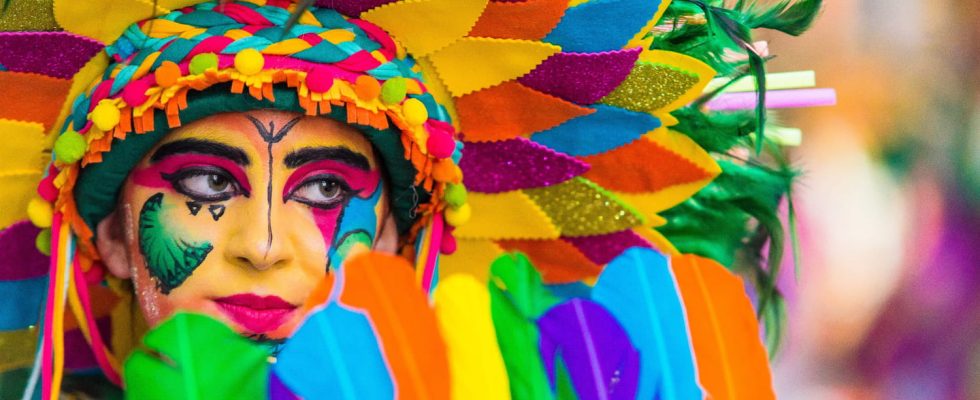From February onwards, carnival is in full swing in the streets of many cities. Nice, Dunkirk, Venice, Guadeloupe… Here are the dates of the festivities and everything you need to know about this atypical event.
In many cities, the month of February is synonymous with celebration with the various carnivals that are organized. Among the best known, there is the traditional Rio de Janeiro carnival, the oldest carnival in Venicebut also that of Nice and of Dunkirk. For each event, we find the costumed parades, animated floats or even carnival donuts. The opportunity for many to have fun and dress up. But did you know that? People who respect religious tradition are invited to let go during Carnival before beginning the period of Lent and the fasting that accompanies it. Here is all the information you need to know about this holiday.
What are the dates of the different carnivals in 2024?
Every year, the Carnival festivities take place between Epiphany and Mardi Gras. Until then, cities around the world organize their own carnival. Some sometimes extend the event by a few days, or even several weeks, as is the case in Dunkirk.
- Dates of the Nice Carnival 2024 : from February 17 to March 3, 2024.
- Dates of the Dunkirk carnival 2024 : from January 6 to April 7, 2024.
- Rio de Janeiro Carnival Dates in Brazil 2024 : from February 9 to 17, 2024.
- Venice Carnival 2024 dates: from January 27 to February 13, 2024.
- Carnival dates in Guadeloupe : from January 6 to February 14, 2024.
Where does the carnival tradition come from?
THE origins of carnival are many. The beginnings of carnival appeared in Antiquity, that is to say between 3,500 and 3,000 years BC. Two centuries BC, the inhabitants of Babylon organized five days of celebration, called Sacées, to honor the goddess Anaïtis and greet the arrival of spring. During these five days, the slaves slipped into their masters’ costumes and vice versa. During the time of ancient Rome, the Romans celebrated the saturnalia, festivals which lasted several days at the time of the winter solstice, and during which the roles were also reversed to honor Saturn.
Later, in the Middle Ages, representatives of the Catholic Church first rejected these pagan festivals before adopting them. In the 8th century, Lent, a 40-day fast, but also Easter were established. It was at this time that the carnival which took place before Lent was democratized in order to allow Catholics to relax before a long period of fasting. Nowadays, carnival as we know it is not strictly speaking a religious event.. On the other hand, in Christianity, Carnival is a holiday associated with religion, since it is closely linked to Lent, which marks the 40-day period before Easter.
Why do we dress up at carnival?
Historically, the carnival materialized through a reversal of roles : the masters thus disguised themselves as slaves and vice versa or the rich as poor. This made it possible to mix with others despite social classes and to party together. From, disguise remains inseparable from carnivalstill today.
Why do we wear a mask during carnival?
At one time, wearing a mask allowed you to preserve the mystery of each person’s identity. The mask is in itself a disguise for the face, which hides the truth that lies beneath. Today, the mask is an essential element of carnival. It ensures the anonymity of the person who wears it and this allows them to put themselves a little more into the skin of the character they are playing. here are some masks to print, make or color :
Why do we eat donuts at carnival?
The tradition of eat donuts at carnival finds its origin in Catholic rites. From a religious point of view, Carnival is a period of festivities preceding a time of fasting. Mardis Gras marks the end of the festivities. For Christians, Mardi Gras is an opportunity to enjoy rich and hearty dishes one last time before following a diet. Donuts were prepared this way so as not to waste people’s eggs and butter.
What activities to do with the children for carnival?
For carnival, there are a whole bunch ofactivities to do with family. Children can help make their own costume, or make their own mask or accessories, like maracas to make noise in the street. For a gourmet touch, nothing like a sweet cooking recipe (donuts, cupcake…) to make with several hands, with your children.
